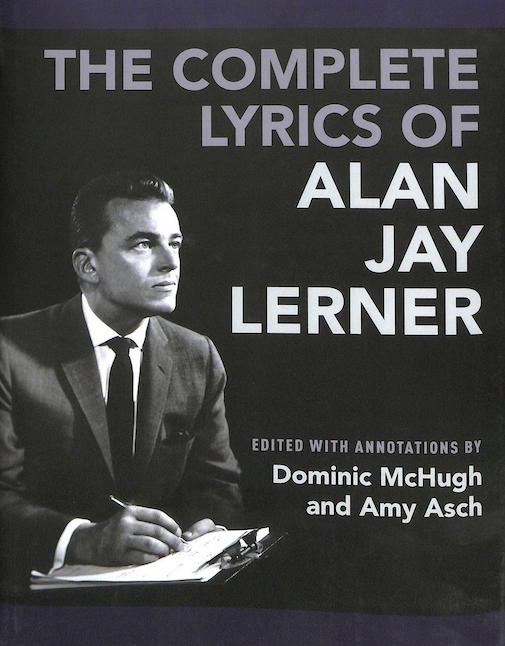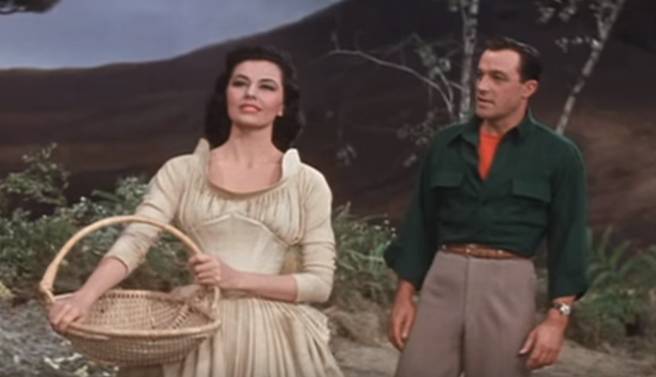by Nathaniel R
 Today marks the 100th anniversary of the birth of Alan Jay Lerner, one of the most crucial figures in the American songbook. The lyricist, librettist, and screenwriter was born in New York City. That's where he first made his mark, too, on Broadway with his first big hit Brigadoon in 1947. Soon he went Hollywood, working on original movie musicals as well as transfers of his famous work from the stage, and garnering 7 Oscar nominations and 3 wins (for his screenplays to Gigi and An American in Paris, and songwriting for"Gigi"). His career ended with The Little Prince (1974) but at the time of his death in 1986 he was working on a musical adaptation of My Man Godfrey and had started work on Andrew Lloyd Webber's Phantom of the Opera, though his only efforts are in the song "Masquerade" (uncredited).
Today marks the 100th anniversary of the birth of Alan Jay Lerner, one of the most crucial figures in the American songbook. The lyricist, librettist, and screenwriter was born in New York City. That's where he first made his mark, too, on Broadway with his first big hit Brigadoon in 1947. Soon he went Hollywood, working on original movie musicals as well as transfers of his famous work from the stage, and garnering 7 Oscar nominations and 3 wins (for his screenplays to Gigi and An American in Paris, and songwriting for"Gigi"). His career ended with The Little Prince (1974) but at the time of his death in 1986 he was working on a musical adaptation of My Man Godfrey and had started work on Andrew Lloyd Webber's Phantom of the Opera, though his only efforts are in the song "Masquerade" (uncredited).
Earlier this summer I had the opportunity to moderate a screening of My Fair Lady (1964) and my guest was Amy Asch who co-edited/annotated the book you see to your left here. So for fun today I thought I'd share a handful of favorite lyrics from his vast repertoire.
You can sing along as you read...

"The mist of May is in the gloamin', and all the clouds are holdin' still.
So take my hand and let's go roamin' through the heather on the hill."
"Heather on the Hill" from Brigadoon is one of the songs that best captures how skilled Lerner was at painting a picture with his words, and the picture was often swoonily romantic. He could sell lust in a song but was even better, I think, with the innocent first bloom of true love.
You, dear friend, who taught so well
You can go to Hartford, Hereford and HampshireThey can still rule the land without you
Windsor Castle will stand without you
And without much ado we can
All muddle through without you
"Without You" is such a great meta moment in My Fair Lady. It's brimming with pent-up anger but also reminds us that Eliza's headspace (and heartspace) is completely filled up with Henry Higgins because why else would she get so flowery and verbose about dismissing him or taking revenge on him ("Just You Wait 'enry 'iggins"). It also inverts another classic song from the same score ("The Rain in Spain") replacing the natural curse rhyme of "hell," for a surprise chuckle, with "Hartford, Hereford and Hampshire". So funny.

What a frenzied moment that was
Didn't they maintain an exhausting pace?
"Ascot Gavotte" from My Fair Lady, the whole number, is comic perfection in miniature. Especially this moment when the stuffy lyrics paired with the staccato rhythm of the song are quite the opposite of the emotions they're describing.
"In short, there's simply not
A more congenial spot
For happily-ever-aftering
Than here in Camelot"
"Camelot" and Camelot as a whole gets a lot of crap but I personally love it, and how this song so blunty proclaims its fealty to idealized romanticized utopia... and of course tragically since nobody does any 'happily-ever-aftering' here. I think you can trace some of Sondheim's genius with wordplay to Lerner. Oscar Hammerstein II was Sondheim's mentor but he must have also grown up listening to Lerner.
Anyone who's ever been in love with tell you that
This is no time for a chat!
Haven't your lips longed for my touch?
Don't say how much, show me!
"Show Me" is My Fair Lady's most underrated song. Like certain songs from Camelot, this one shows that Lerner was completely aware of the construction of swoony romanticism. He could sell it but he also knew it was self-created. I love this moment in this musical because, though it's rarely discussed, this is Eliza really moving from passive to assertive. Plus its funny in a "snap out of it" (Moonstruck) or "Don't speak!" (Bullets Over Broadway) kind of way.
"Bed, bed I couldn't go to bed
My head's too light to try to set it down
Sleep, sleep I couldn't sleep tonight
Not for all the jewels in the crown"
"I Could Have Danced All Night" from My Fair Lady is possibly my favorite song from Lerner and Loewe ever and I chose this piece of it because it's such a smart way to begin a song. Lerner was terrific at first lines to songs. You can feel the rush and crescendo of emotions as Eliza lets them carry her up and away (which is what the main chorus will get ecstatic about).

If ever I would leave you,
How could it be in springtime?
Knowing how in spring I'm bewitched by you so?
Oh, no! not in springtime!
Summer, winter or fall!
No, never could I leave you at all!
"If Ever I Would Leave You" from Camelot is a great bookend for the previous song because it ends so perfectly. (Another great example of this is the build in "Almost Like Being in Love" from Brigadoon). Each verse of Lancelot's power ballad has been about a different season, the twist of the song being that Lancelot is NEVER leaving Guinevere since he rationalizes away any possibility from any season. Lerner was just as good at ending a song with even more heightened rapturous feeling then he could suddenly conjure to begin one.
The End.